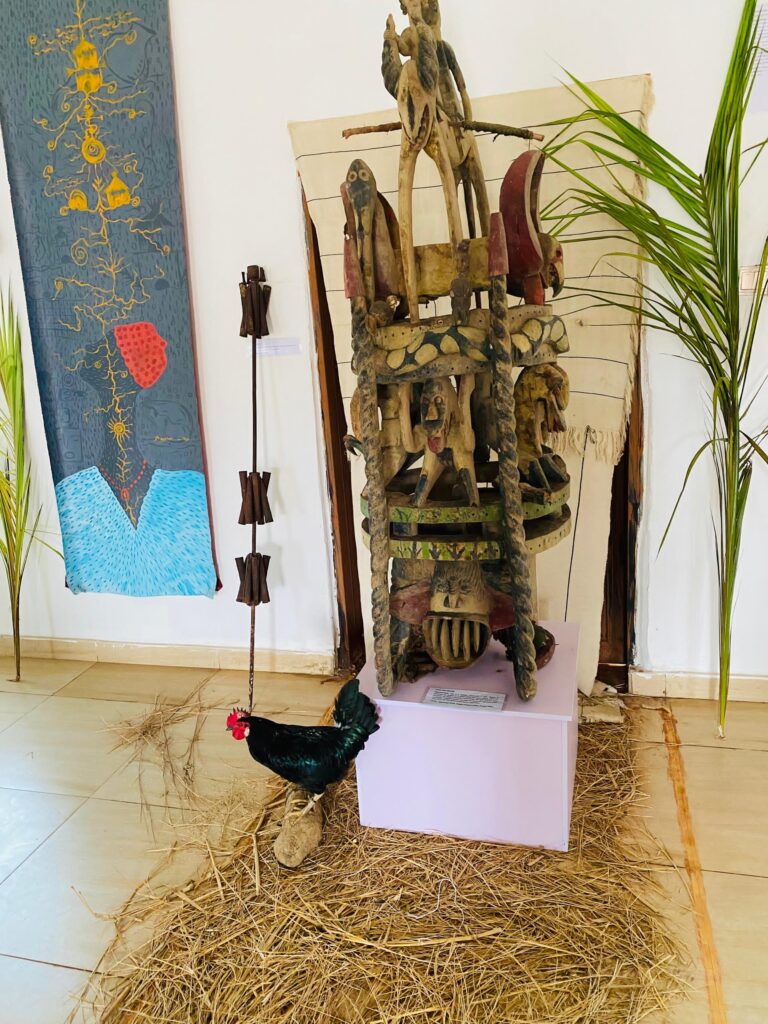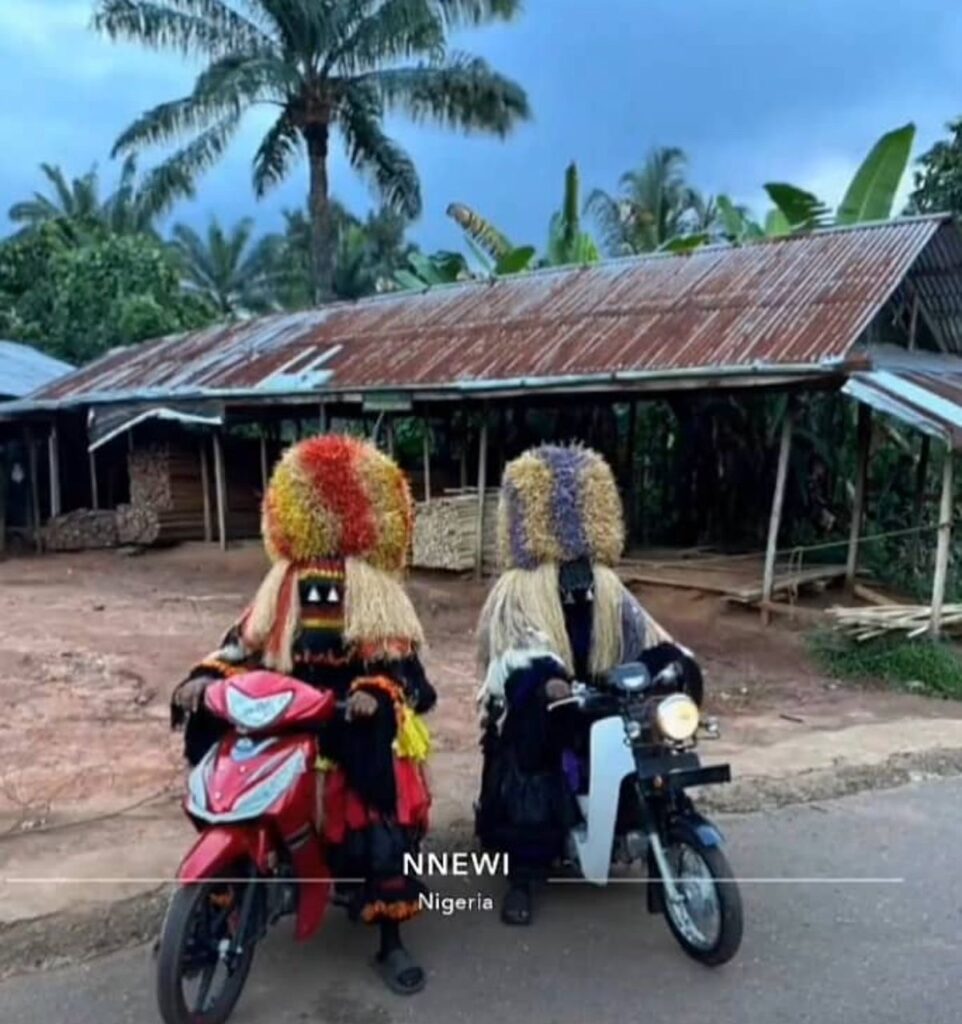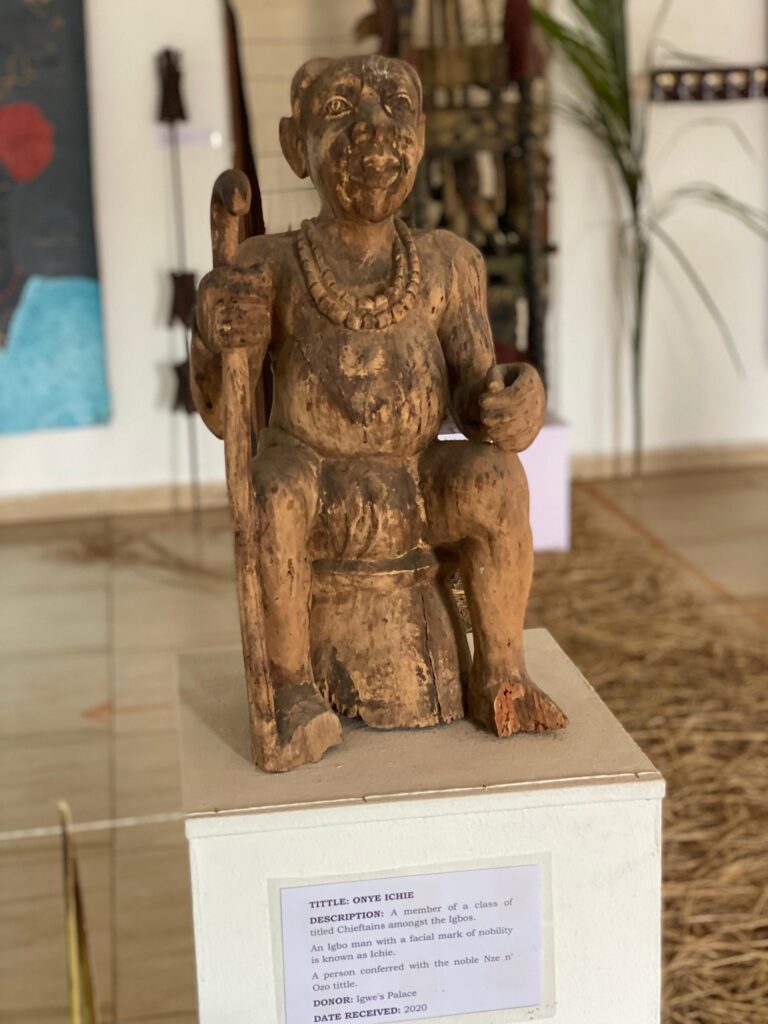Theme: Home, Memory, Spirituality
Guided by: Shelter Card — Home & Identity
The Unseen Guests at Every Igbo Festival
In Igbo culture, festivals are never just about the living. The ancestors are always part of the gathering. They may not sit at the table or dance in the village square, but their presence is deeply felt. Through libations, songs, prayers, and ritual offerings, the living acknowledge that they share life with those who came before them.
This “invisible audience” is not symbolic alone, it is a reminder that every act of celebration is also an act of continuity. To the Igbo, the past does not disappear; it lingers, guiding, blessing, and sometimes warning. Festivals become the bridge that links the seen and unseen, weaving the community of the living with the eternal fellowship of the departed.
Understanding the Ancestral Worldview in Igbo Culture
To understand why Igbo celebrations always invoke the presence of the ancestors, one must first appreciate their worldview of life and existence. For the Igbo, reality is not divided into isolated compartments of the living and the dead. Instead, it is a continuous circle, where the departed (ndichie) remain active members of the community.
1. The place of ancestors in Igbo cosmology
In Igbo cosmology, life flows from Chukwu (God) through the ancestors to the living. The ancestors are those who lived upright lives, died natural deaths, and were properly buried. They are not seen as distant spirits but as an extension of the family, watching over the lineage. Their continued relevance shows that death is not an end but a transformation into another stage of existence.
2. Ancestors as moral guardians and protectors
The ndichie are more than just family spirits; they are moral guardians and protectors. They ensure that cultural values are upheld, that truth and justice prevail, and that the community remains united. When conflicts arise, invocations of the ancestors remind the living to act rightly, since nothing is hidden from those who watch from the invisible realm.
3. Belief in reciprocity — honoring the cycle
Igbo belief emphasizes reciprocity between the living and the dead. The living honor their ancestors with prayers, libations, and ritual offerings. In turn, the ancestors bless them with fertility, protection, and prosperity. This exchange maintains harmony, binding generations together. To neglect the ancestors is to risk misfortune, but to remember them is to secure the goodwill of the unseen.
In this worldview, every festival becomes more than merriment. It is a sacred moment of dialogue between the seen and unseen, between past and present, between the roots of tradition and the branches of modern life.

Rituals of Presence: How Ancestors Are Invited to the Festival
In Igbo festivals, the ancestors are never treated as distant memories. Instead, they are seen as honored guests who must be formally invited and appeased before any true celebration can begin. The rituals that precede dances, feasting, or masquerades are not mere formalities, they are spiritual acts of communication, ensuring that the living and the dead commune in harmony.
- Libations as Invocation
Pouring out palm wine, gin, or water onto the ground is one of the most common ways to invite ancestors. Before a feast begins, the eldest in the gathering will call the names of forebears, asking them to “come and eat” with the living. This act establishes a sacred link, acknowledging that the festival is incomplete without the ndichie (ancestors). - The Kola Nut Ritual
The kola nut (ọjị) is central to Igbo hospitality and spirituality. Before it is broken and shared, it is first raised to the heavens and presented to the ancestors. The elder prays for peace, fertility, and protection, asking the departed to bless the community. Only after this act is the kola broken, signaling the ancestors’ approval of the gathering. - Songs, Drumming, and Dance
Music is not just entertainment, it is a channel through which the spirit world responds. Certain songs are chants specifically directed to ancestors, recalling their deeds or praising their names. The rhythms of drums, flutes, and rattles carry prayers beyond the human realm. As dancers move in sync with the music, their gestures often mirror rituals of calling and honoring the departed.
Together, these practices affirm that Igbo celebrations are not simply social events. They are ceremonies of presence, where the ancestors are invited not as passive observers, but as vital participants in the joy and solemnity of communal life.
The Festival Space as a Sacred Stage
In Igbo society, the festival is not just entertainment, it is a carefully prepared meeting ground for the living and the dead. The village square (ama), where most communal celebrations take place, is transformed into a liminal space, a threshold where human beings and ancestral spirits coexist.
The Village Square as Sacred Ground
Ama is the heart of Igbo communal life, and during festivals, it becomes more than a gathering place. Ritual markings, sacred trees, or ancestral shrines at the edges of the square remind participants that the space belongs equally to the visible and invisible community. Every dance step, drumbeat, and chant acknowledges this shared ownership.

Costumes, Masks, and Performance
Symbolism runs deep in the costumes and masquerades that dominate Igbo festivals. The masquerade (mmanwu), for example, is never viewed as mere theater. It is understood as the embodiment of ancestral spirits who descend to walk among the people. Masks often represent the moral lessons, spiritual warnings, or blessings of the ancestors. Through these performances, the community sees and obeys the voice of the unseen.
Community as the Bridge
What makes the festival sacred is not only ritual but active participation. The singing of women, the drumming of men, the dancing of youths, and the prayers of elders all weave together to create a chorus that invites the ancestors. In this way, the festival is a communal act of faith, everyone plays a role in keeping the ancestral link alive.
The festival space, therefore, becomes a sacred stage where two audiences meet: the living gathered in sight, and the ancestors present in spirit.
The Ancestors as Participants, Not Spectators
In Igbo cosmology, ancestors are never imagined as silent bystanders. They are woven into the very fabric of festivals, not as guests but as co-celebrants. Their presence is both expected and consequential.
- Blessings in Return for Honor
When the living pour libations or break the kola nut in their name, the ancestors respond with tangible blessings; bountiful harvests, fertility in families, communal peace, and justice within the village. Every yam harvested, every child born, and every season of stability is understood as the ancestors’ reward for remembrance. - Interventions in Oral Traditions
Folktales and myths often recount moments when ancestors made their presence felt during celebrations. Some stories speak of masquerades (mmanwu) revealing secrets known only to the departed, or mysterious winds rising at the moment of invocation, signs that the unseen were indeed among the living. - The Consequence of Neglect
Just as ancestors can bless, they can also withdraw favor. Festivals performed without proper rituals, or communities that forget their dead, risk misfortune. Failed crops, sickness, or social discord are often interpreted as ancestral displeasure. In this way, Igbo celebrations are not merely festive, they are acts of spiritual diplomacy, ensuring the living remain in good standing with the dead.
With all these being said, to dance, feast, and sing in an Igbo festival is to move in rhythm not just with one’s neighbors, but with generations past who watch, listen, and actively shape the destiny of the community.
The Invisible Audience Remains
The ancestors may not walk among us in flesh, but they are here; unseen, yet ever-present.
They are the quiet audience, the unseen dancers, the breath behind the drumbeat.
Every festival is a covenant renewed, a dialogue across the bridge of time.
To celebrate is to remember.
To remember is to give them life again.
And so we whisper the eternal truth:
“Mmụọ anaghị anwụ anwụ”
Because, indeed, the spirit never dies.
